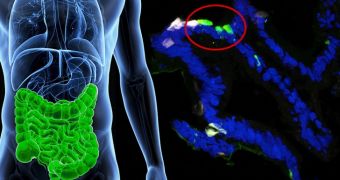A recent paper in the journal Nature Communications details how, using genetic engineering, scientists have managed to coax human gut cells into producing insulin.
As detailed in a press release on the matter at hand, this breakthrough was achieved by switching off just one of the human gastrointestinal cells' genes, and is expected to greatly benefit type 1 diabetes patients.
The Colombia University specialists behind this research project explain that, in the case of folks suffering from type 1 diabetes, the immune system wipes out insulin-producing cells in the pancreas.
The result is that, in time, sugar starts to build up in the blood. Unless these sugar levels are kept well in check, type 1 diabetes sufferers can develop various medical complications.
Hence, efforts are now being made to develop cells that can step in and replace the insulin-producing ones that get destroyed in type 1 diabetes patients.
Up until now, the Colombia University researchers have only managed to coax human gut cells outside the body into becoming insulin producers. This was achieved by deactivating a gene dubbed FOXO1.
However, the researchers expect that, in about two years' time, maybe even sooner, they will be able to make the switch from experimenting on miniature tissue models to clinical trials.

 14 DAY TRIAL //
14 DAY TRIAL //